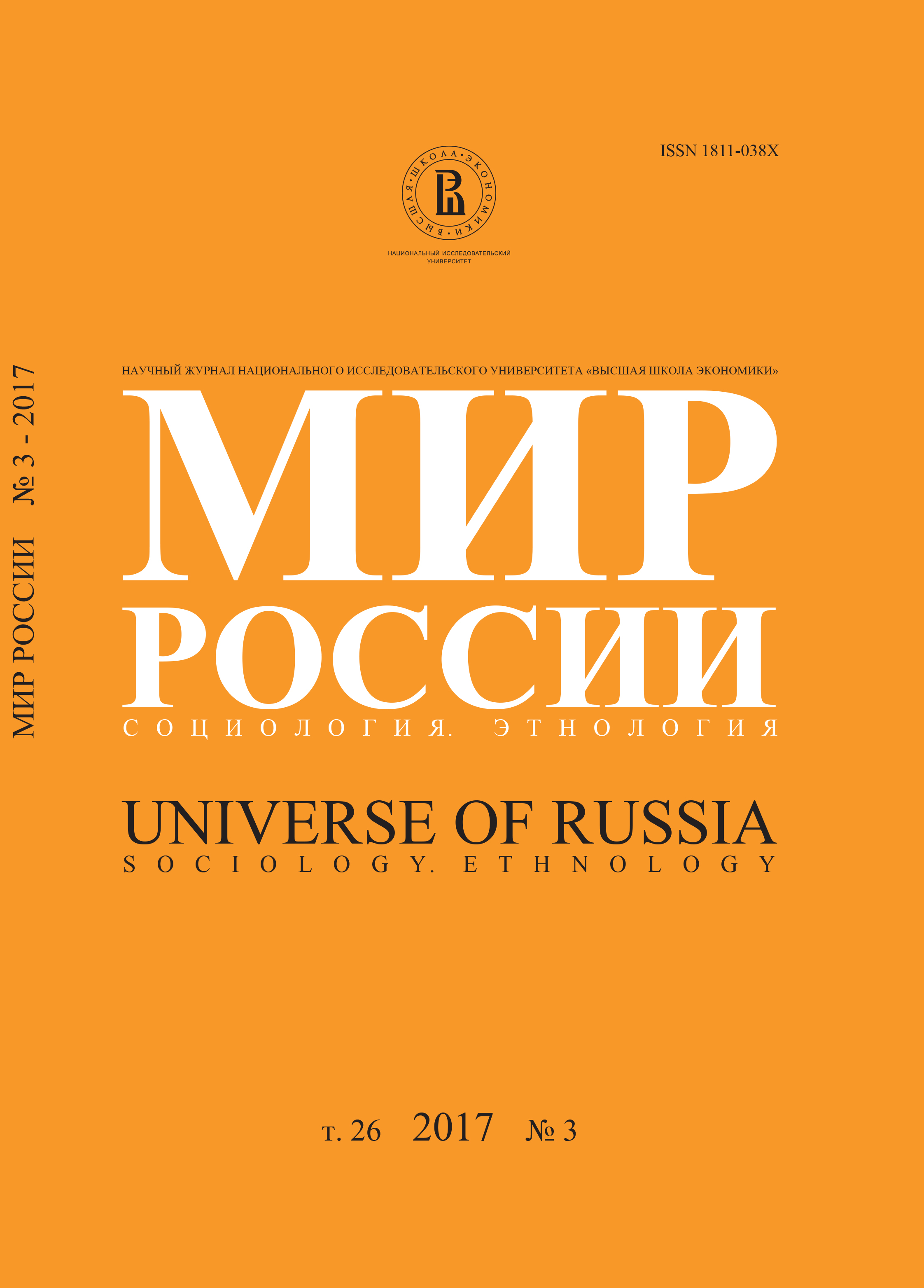Changes in the Standing of Lecturers at Russian Higher Education Institutions
Abstract
Margarita Kurbatova — Doctor of Science in Economics, Professor, Head, Department of Economic Theory and Public Management, Kemerovo State University. Address: 6, Krasnaya St., Kemerovo, 650043, Russian Federation. Email: kmv@kemsu.ru
Inna Donova — Senior Lecturer, Management Department, Kemerovo State University. Address: 6, Krasnaya St., Kemerovo, 650043, Russian Federation. Email: idonova@gmail.com
Elena Kagan — PhD in Technology, Associate Professor, Applied Mathematics Department, Kemerovo State University. Address: 6, Krasnaya St., Kemerovo, 650043, Russian Federation. Email: kaganes@mail.ru
Citation: Kurbatova M., Donova I., Kagan E. (2017) Changes in the Standing of Lecturers at Russian Higher Education Institutions. Mir Rossii, vol. 26, no 3, pp. 90–116 (in Russian). DOI: 10.17323/1811-038Х-2017-26-3-90-116
Changes in the institutional organization of universities accompanied by changes in lecturers’ status is a common trend around the world. Universities are turning into customer-oriented organizations that produce educational services and hire lecturers on the open labour market. Academic contracts are being changed as part of this trend: permanent contracts become rare, and more effort is put into remuneration based on the individual productivity of lecturers. This paper describes a comprehensive assessment of such policies on the work of Russian university lecturers and shows their impact on the lecturers’ behavioural strategies.
Our methodology relies on hierarchy process analysis and fuzzy set analysis. Using a survey of experts we first evaluate the relative significance of the effects of the external monitoring of lecturers’ work. We then evaluate the occurrence of these effects using a more formal survey. These analyses show that university communities hold highly negative attitudes towards the new monitoring methods and they expect these negative effects to accumulate in the future, albeit at a slower pace. We further show that Russian university lecturers choose different behavioural strategies depending on their human capital and the resource capacities of their universities. Highlighted strategies represent combinations of different ways of coping with the problems of institutional transformation (“exit”, “voice” and “loyalty”, according to approach of Hirschman). An analysis of the data showed that the polar assessment of the severity of behaviours is observed when using “exit”, and “voice” as a residual “exit” function. The use of other ways to respond (“voice” as the alternative of “exit” and two “loyalty” varieties) in the assessment of selected groups of lecturers are more differentiated. This indicates that the possibility of using the “exit” and “voice” as a residual function are critical for the formation of the behavioural strategies of Russian university lecturers. The composition of the revealed groups of lecturers varies depending on their professional and socio-demographic characteristics.
In general, we find that the reforms have had a negative effect on the standing of Russian university lecturers—increasing the intensity of their work, and lowering their social status. The distribution of working time is changing according to the directions of activity. At the same time the professional community has become more stratified, because different actors chose different strategies to cope with the institutional transformation of the university environment.






